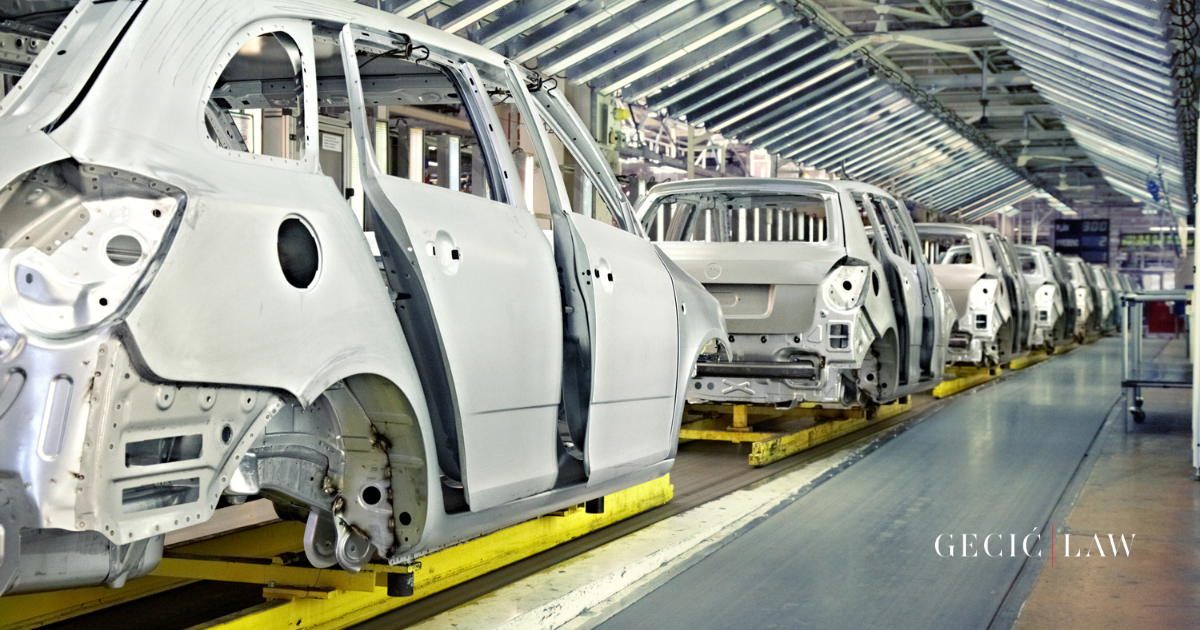

The European automotive industry, a cornerstone of the continent’s economy, is currently navigating a transformative period. This era is marked by technological advancements, environmental imperatives, and intensifying global competition. To address these challenges and ensure the sector’s continued vitality, the European Commission has recently introduced a comprehensive Automotive Industrial Action Plan, focusing on innovation, clean mobility, supply chain resilience, and workforce development.
Central to the action plan is the establishment of the European Connected and Autonomous Vehicle Alliance. This initiative aims to foster collaboration among industry stakeholders to develop shared software and semiconductor technologies. It also focuses on advancing digital hardware essential for the next generation of vehicles. By creating large-scale testing environments and regulatory sandboxes, the alliance seeks to expedite the deployment of autonomous vehicles across Europe. Supported by a €1 billion public-private investment from Horizon Europe, this effort drives advancements in automotive technology. It highlights the EU’s commitment to staying competitive in automotive innovation.
The EU remains steadfast in its goal to achieve zero-emission mobility, reaffirming the target that all new cars sold within the bloc must be zero-emission vehicles by 2035. To facilitate this transition, the Commission has proposed adjustments to CO₂ emissions regulations. It thus plans to shift compliance assessments from an annual to a triennial basis (2025-2027). This modification provides automakers with greater flexibility to meet emissions targets without compromising financial stability.
The Commission recognizes the pivotal role of corporate fleets, which account for 60% of new car registrations in the EU. To address this, it has introduced the Strategy for Greening Corporate Fleets. This strategy outlines best practices and anticipates legislative proposals by the end of 2025. It aims to accelerate the adoption of electric vehicles (EVs) within corporate sectors.
The action plan emphasizes strengthening the EU’s battery production capabilities. This aims to reduce dependence on imports and ensure the competitiveness of EVs. By providing financial support and direct production aid to European battery manufacturers, the Commission aims to bolster the entire automotive supply chain. This support is intended to ensure resilience against external disruptions.
As the industry evolves, so too must its workforce. The Commission therefore plans to invest in upskilling and reskilling initiatives to equip workers with the competencies required for emerging automotive technologies. Collaborations with educational institutions and industry partners will particularly facilitate training programs tailored to the needs of the modern automotive sector, ensuring that the workforce remains adaptable and proficient.
Serbia and the broader Western Balkans are increasingly integral to the EU’s automotive supply chain, serving as key locations for suppliers and manufacturing facilities. As the industry faces a significant downturn, these economies are particularly vulnerable to its effects. In this context, the European Commission’s Automotive Industrial Action Plan offers a welcome framework to help navigate the transition and provide strategic support.
Moreover, the shift toward zero-emission mobility will demand substantial investment in areas such as electric vehicle (EV) component manufacturing, battery production and raw materials, and workforce reskilling. As the EU emphasizes domestic supply chain resilience, countries like Serbia stand to benefit from new foreign investment in green automotive technologies. At the same time, regional suppliers will also need to meet stringent environmental and technological standards to remain competitive and aligned with evolving EU industry expectations.
The European Commission’s Automotive Industrial Action Plan presents a multifaceted strategy to strengthen Europe’s car industry. It accordingly addresses challenges from growing global competition. By prioritizing technological innovation, sustainability, supply chain resilience, and workforce adaptability, the EU consequently aims to fortify its automotive sector. This strategy altogether helps protect the industry against future disruptions. All in all, this approach aims to enhance economic stability and reaffirm Europe as a global leader in zero-emission mobility. At the same time, it aligns long-term industrial growth with environmental responsibility.
Click the link to access a comprehensive Factsheet for the Automotive Industrial Action Plan.